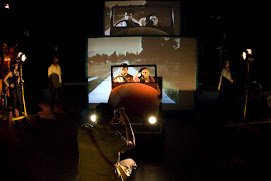‘On his deathbed, they say, Leonardo da Vinci regretted that he had left so much unfinished.’
Procrastination. Something I know intimately, as I suspect do many other writers. Although I’ve come to accept it as an integral—and perhaps necessary—part of the creative process, I still often berate myself for wasting time and not getting on with the task at hand. Since reading this delicious essay How to Procrastinate Like Leonardo da Vinci by W A Pannapacker, however, I’ve decided to stop with the scolding and embrace my “inner procrastinator”, because ‘Leonardo, it seems, was a hopeless procrastinator ... ’ and who am I to argue with Leonardo?
‘Of course, the therapeutic interpretation of Leonardo—and, perhaps, of many of us in academe who emulate his pattern of seemingly non-productive creativity—has a long history. Leonardo’s reputation spread at exactly the right time for someone to become a symbol of this newly invented moral and psychological disorder: procrastination, a word that sounds just a little too much like what Victorian moralists used to call “self-abuse.”
The unambiguously negative idea of procrastination seems unique to the Western world; that is, to Europeans and the places they have colonized in the last 500 years or so. It is a reflection of several historical processes in the years after the discovery of the New World: the Protestant Reformation, the spread of capitalist economics, the Industrial Revolution, the rise of the middle classes, and the growth of the nation-state. As any etymologist will tell you, words are battlegrounds for contending historical processes, and dictionaries are among the best chronicles of those struggles … ’
Read the rest of W A Pannapacker’s article on the Arts & Letters Daily website.
26 February 2009
Subscribe to:
Post Comments (Atom)
+Photo+Leah+McGirr+3.jpg)




No comments:
Post a Comment